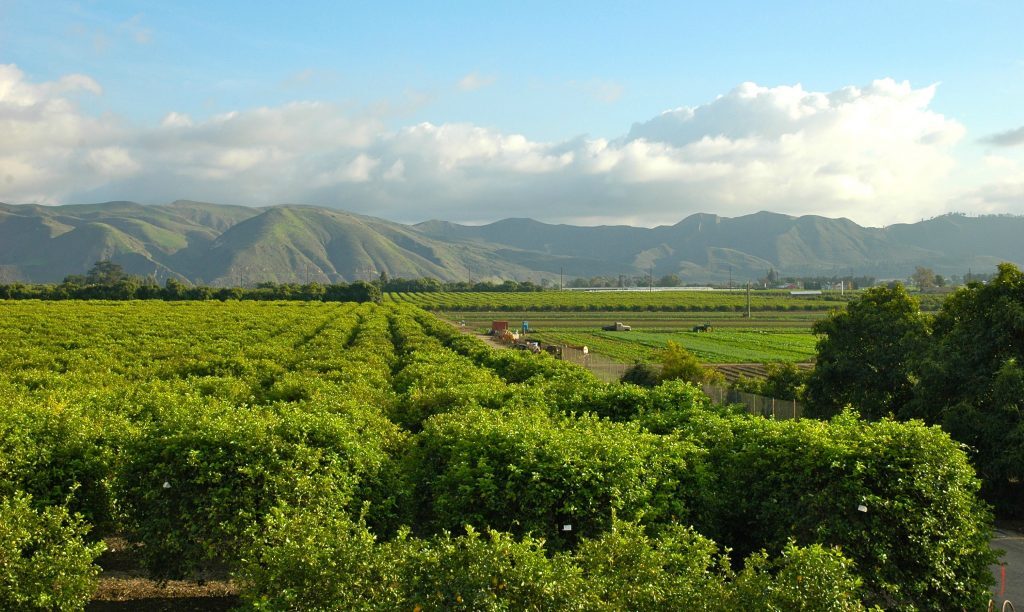
Washington, DC – Today, Congresswoman Julia Brownley (D-CA) introduced the Conservation for Agricultural Leased Land Act (CALL Act) and the Climate Agricultural Conservation Practices Act to assist farmers in the transition to environmentally conscious conservation practices in agriculture.
“Approximately nine percent of our nation’s total greenhouse gas emissions are attributed to the agricultural sector, and underdeveloped conservation practices in agriculture hold an immense potential to curb greenhouse gas emissions and to address the climate crisis, which impacts every sector and industry around the world,” said Congresswoman Brownley. “This potential can only be fully reached when farmers all across America carry out fruitful and sustainable conservation practices.
“Despite there being numerous federal programs in place to help farmers adopt conservation practices, many farmers still struggle to access these programs and their benefits. My legislation aims to better help America’s farmers to benefit from these programs and put them into practical use.
“Specifically, my legislation would identify the barriers that farmers who lease their lands face when implementing conservation programs. Additionally, I have authored legislation that would set conservation standards that meet the necessary threshold for climate sustainability. It is absolutely imperative that our farmers are given access to the right tools to help us all in our collective efforts to combat climate change.”
Conservation for Agricultural Leased Land Act
The U.S. Department of Agriculture (USDA) operates several programs that provide financial and technical support to farmers looking to improve the conservation of their land, including the Conservation Stewardship Program (CSP) and the Environmental Quality Incentives Program (EQIP). These programs have had numerous benefits, including increasing crop yields, maintaining healthier soils and ecosystems, and increasing the amount of carbon sequestered in soil, which helps us to address the climate crisis.
Unfortunately, some farmers struggle to access these programs or implement conservation practices because they lease, rather than own, farmland. In fact, according to a 2016 USDA study, 39 percent of agricultural land in the U.S. is leased. That said, the precise challenges these farmers face have been under-studied and therefore are not fully understood. Some of the potential barriers these farmers face include the length and structure of a lease, the level of independence given to the farmer, and the awareness of the landowner of the conservation programs that exist.
The Conservation for Agricultural Leased Lands (CALL) Act would require the USDA to conduct a study to better understand the unique barriers that farmers who lease their lands face in accessing conservation programs or implementing conservation practices. With the information gained from this study, USDA and Congress will be able to make improvements to existing federal programs to ensure that farmers who lease land are able to participate fully in these programs and derive the benefits of improved conservation practices.
The text of the bill can be found here.
Climate Agricultural Conservation Practices Act
The agriculture sector currently contributes about nine percent of the United States’ total greenhouse gas emissions. However, unlike many other sectors, agriculture has the potential to serve as a net negative greenhouse gas emissions sector by working with farmers to transition to environmentally friendly conservation practices. Oftentimes, these practices result in a more profitable farm as well.
The Natural Resources Conservation Service (NRCS) is responsible for developing and maintaining a list of conservation practice standards that are eligible for federal support. While many of the currently approved conservative practices (such as cover crops or no-till farming) are good for the climate as an indirect consequence, NRCS does not directly consider climate benefits when developing their list of approved standards.
The Climate Agricultural Conservation Practices Act would require NRCS to consider climate benefits – such as reductions in greenhouse gas emissions, increases in carbon sequestration, or mitigation against or adaptation to increased weather volatility – when developing conservation practice standards.
The text of the bill can be found here.
###
Issues: 118th Congress, Agriculture, Climate Crisis, Environment